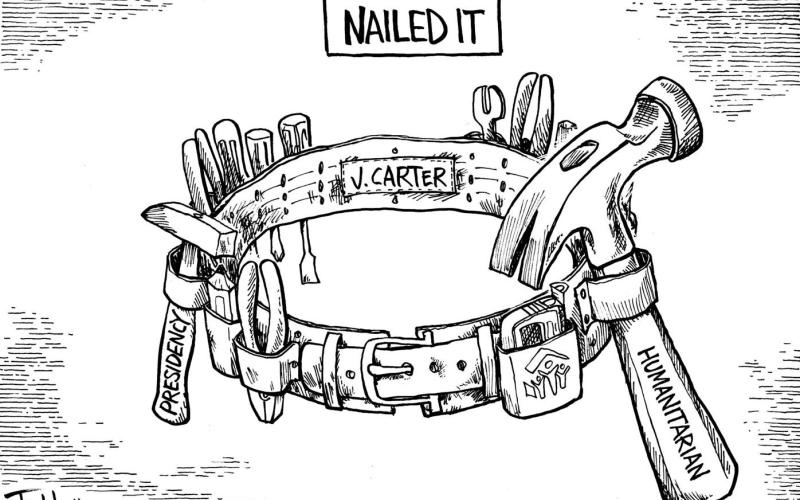What could have been my toughest UGA assignment turned out to be the easiest.
My task was to get all seven 1970 Democratic gubernatorial candidates to participate in a political forum, and then I would moderate the event.
My top targets were former governor Carl Sanders and Jimmy Carter, a peanut-farming former state senator from Plains. Fifty-three years ago, governors couldn’t run for re-election. That’s why Sanders sat out four years and came back to face six others, including Carter. My first call was to the future president. (Now, who would have predicted that back then?)
“Mr. Carter, if former governor Sanders comes to Athens, will you?”
“Absolutely,” he said. “But I’ll come even if he doesn’t.”
My second call was to Sanders: “Governor, we’re having a political forum at UGA. Could you attend?”
“Who’s coming?”
“We’re hoping all seven Democrats, but I know that Jimmy Carter will be there.”
“Count me in.”
The other five—C.B. King, J.B. Stoner, Dr. McKee Hargrett (rhymes with “Margret”), Thomas Irwin and Adam Matthews—jumped at the chance to be on the Fine Arts Auditorium’s stage. And if this tells you where politics was in 1970, I guess we completely overlooked Jimmy Bentley and Hal Suit, who were vying for the Republication nomination.
But this is about Jimmy Carter, who came early that spring day. That’s how we met. He wanted a tour of the campus, so we jumped on a UGA bus, rode and talked about issues that the students were discussing. Over the coming decades, we’ve stayed in touch. But not necessarily politically. We have had different views on many issues, but we have been in lockstep over protecting our natural resources and environment.
In fact, in his 1972 reorganization of state government, Gov. Carter established the Georgia Department of Natural Resources (DNR) and the Environmental Protection Division (EPD). More than a decade ago, President Carter was excited that photographer Wayne Morgan and I were publishing a children’s book about his boyhood’s favorite fishing hole in Southeast Georgia. He endorsed our Kase for the Environment.
Once, when we were having dinner, President Carter put down his fork and delivered a monologue about the white sands, the tea-colored water, and the fish that he and his father had pulled from the Little Satilla River. I put down my fork, too. I listened and watched his eyes dance. The 80-something Nobel Peace Prize winner and Habitat for Humanity carpenter had the face of a 10-year-old boy, flashing his famous grin. That’s what the majesty of God’s outdoors should do for everyone.
But it doesn’t.
Our natural resources and environment are under constant assault. Three bills in this session of the General Assembly are about:
- Prohibiting mining near the Okefenokee Swamp
- Unsafe storage of toxic coal ash
- Questionable soil amendments
Many observers predict these bills will die in the House’s committee on natural resources and environment. Go figure.
Among my keepsakes are letters from Jimmy Carter, with extra notes of encouragement in the margins. My first letter from him was in 1970, the spring of that UGA gubernatorial forum. I didn’t know that he was going to be president of the United States, but I am grateful that he stayed true to his love of nature.
Today—for a multitude of reasons—I wish that President Carter was stronger. If he could, I am sure that he’d stand up for the Okefenokee Swamp. After all, he included the 438,000 acres in his Georgia Heritage Trust Program. Look up the definition of “irreplaceable.” There should be picture of the Okefenokee right there.
And I’d suggest adding a photograph of Jimmy Carter.
As a former president, humanitarian and conservationist, James Earl Carter Jr. will be irreplaceable, too.

